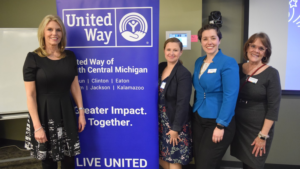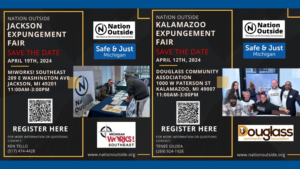
“Oftentimes people of color are asked to educate white people on issues that the person of color has lived with and thought about for their entire lives. That can be very psychologically and emotionally exhausting for a person to then have to care about the white person’s feelings and to take those extra efforts so that they can learn something that they should have — and could have — learned throughout the duration of their life.”
–Kevin Nadal, Microaggressions are a big deal: How to talk them out and when to walk away
Talking about Race is hard. It’s critical to recognize that for a Person of Color, there is real emotional fatigue when talking about Race with a White person in their life. Often, these conversations include a Person of Color having to field microaggressions and triggering, insensitive language.
Conversely, Dr. Robin DiAngelo uses a term, White fragility, to describe a state of being for White people in which even a minimum amount of racial stress becomes intolerable, triggering a range of defensive moves. These moves can include the outward display of emotions such as anger, fear, and guilt, and behaviors such as argumentation, silence, and leaving the stress-inducing situation. These behaviors shut down conversations, and inhibit actions which, in turn, function to reinstate White racial equilibrium.
During times when you are in these conversations, take time to notice how your feelings show up to the conversation. If you are a Person of Color, know that it’s important to set boundaries and it’s ok to say no to engaging in these conversations. If you are White, know that the goal isn’t to avoid the conversation, the goal is for each of us to take responsibility and find opportunities to learn (there are many out there). It’s absolutely okay to be uncomfortable, in fact being uncomfortable is a space in which we learn best.
Today’s Challenge
Read
- Review this list of 28 common racist attitudes and behaviors that indicate a detour or wrong turn into guilt, denial, or defensiveness. (10 mins): https://gallery.mailchimp.com/f7c3e8c5c5cbc6cd069cdecd3/files/c326e213-2078-42ce-95f2-02bcaf2942f3/28ToolsChange.pdf
- Non-Black People of Color Need to Start Having Conversations About the Anti-Blackness in Our Communities by Sharon Park. (4 mins): https://www.dosomething.org/us/articles/our-role-as-non-black-people-of-color-in-disrupting-racism
Watch
- Author Renni Eddo-Lodge explains what happens when she tries to talk about race with White people. (3:26) https://www.pbs.org/newshour/brief/235136/renni-eddo-lodge
Engage
- Battle Creek- Truth, Racial Healing, and Transformation https://www.bctrht.org/
- Jackson- Racial Equity Commission https://www.cityofjackson.org/980/Racial-Equity-Commission
- Kalamazoo- Truth, Racial Healing, and Transformation https://www.kalfound.org/truth-racial-healing-transformation
- Lansing- Truth, Racial Healing, and Transformation https://www.oneloveglobal.org/trht
Discuss
- What does meaningful care look like for you as you navigate microaggressions and the emotional fatigue from conversations about race and racism?
- In what ways have you seen White fragility show up for you (guilt, denial, defensiveness)?










